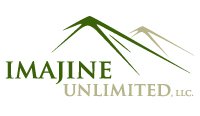“I will walk with you in freedom, for I seek to follow your every command.”
– Psalm 119:45
A leader was sharing with me how some of her processes were not working. This was leading to her not meeting deadlines and then also consuming her time in trying to learn how to fix the process. She was feeling frustration on multiple levels from noticing her own time being wasted to also not meeting the expectations of others through missed deadlines.
This leader’s situation and the above quote reminded me of a challenge that leaders often face. Leaders live in the now and yet are also in the tension of moving themselves and others to a better place. What defines that better place is often a list of results and with that, expectations from others. We can have expectations from our stakeholders, a board, or our supervisor. These results can feel like commands. We can feel a weight in meeting them.
Under this weight, we feel bogged down with the obstacles in the way. At the end of the day, we may have sought a solution but may still not have an answer and can feel like the wanted results loom in the distance. We don’t feel freedom, instead we feel strapped down.
Seeking
So, how do we find freedom, when we live in a world of expectations that feel like heavy commands? How do we not feel work as heavy and instead the joy of getting to a better place?
The key lies in how we are measuring success. We tend to measure success as the end destination of the long-term result. Yet, if our success is based on an end result, most days we don’t get to that result. Our world is becoming more and more complex. Leaders are often involved in complex problems that may take a long time to get to the result.
The quote has a critical component that can be easy to skip over. It says, “for I seek…” Leading is a process of getting to results. We tend to see more immediate results at a technical, front line, or individual contributor level. There is a specific problem, task, or job to do that has a direct solution. However, higher levels of leadership have a focus on more long-term vision. At this level, we need to measure success by how well we are “seeking” or moving towards a result.
How to Seek Well
1. Recognize short-term wins
What are even the smallest steps that show your team is moving forward towards the long-term result? We often need to break a long-term goal into smaller steps. If we don’t, we can easily take for granted any work the team is doing towards those steps. We need to recognize even those small wins.
Be aware that small wins can also happen when mistakes are made. When a mistake happens and the team learns from the mistake, this is a win too. Recognize wherever the forward movement is happening.
2. Repeat short-term wins
We can tend to get absorbed into the obstacles that are holding us back from the results. We can focus so much on what is going wrong that it consumes what we see. It can be helpful to step back and ask, “What is going right?” Sometimes this may be looking at the short-term wins and then being curious on how to repeat those wins. Is there something from a past win that could be applied here? What was different in that past win that I may not be applying now?
I encourage you to make sure that you look at your leadership style, not only at the processes and systems. For example, when you have a short-term win, were you communicating or interacting differently with your team that gave more energy, empowerment or buy-in from others?
3. Reward short-term wins
When short-term wins happen, this is an opportunity to compliment and encourage your team. Sometimes we can fall into the mindset that small things aren’t worth noticing or are just expected. We certainly need to recognize when the long-term results happen and celebrate. But everyday we need encouragement to keep going. Small wins are great opportunities to give words of affirmation and to speak value into another person. This is making deposits into the energy bank account of your team. It is simple, yet life-giving.
Also, take time to review the small wins that you notice at the end of your day. Excellence is not a destination but a journey of getting better. Where did you lead by seeking excellence today and got better? Take satisfaction in this for yourself. Feel the freedom of forward movement and of what is possible tomorrow.
Book Recommendation
A book that embodies this type of thinking and leading is: The Thin Book of Appreciative Inquiry by Sue Annis Hammond
When we measure our success by how well we spent the day seeking how our team is moving forward and how we can continue to support our team moving forward, we then can end the day in freedom. Instead of seeing the weight of not meeting expectations, we see the joy of progress and the energy to keep going towards the long-term result.
